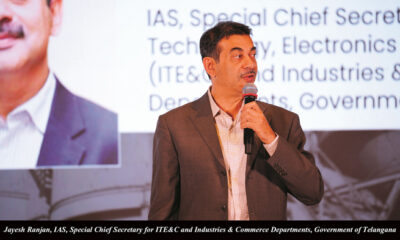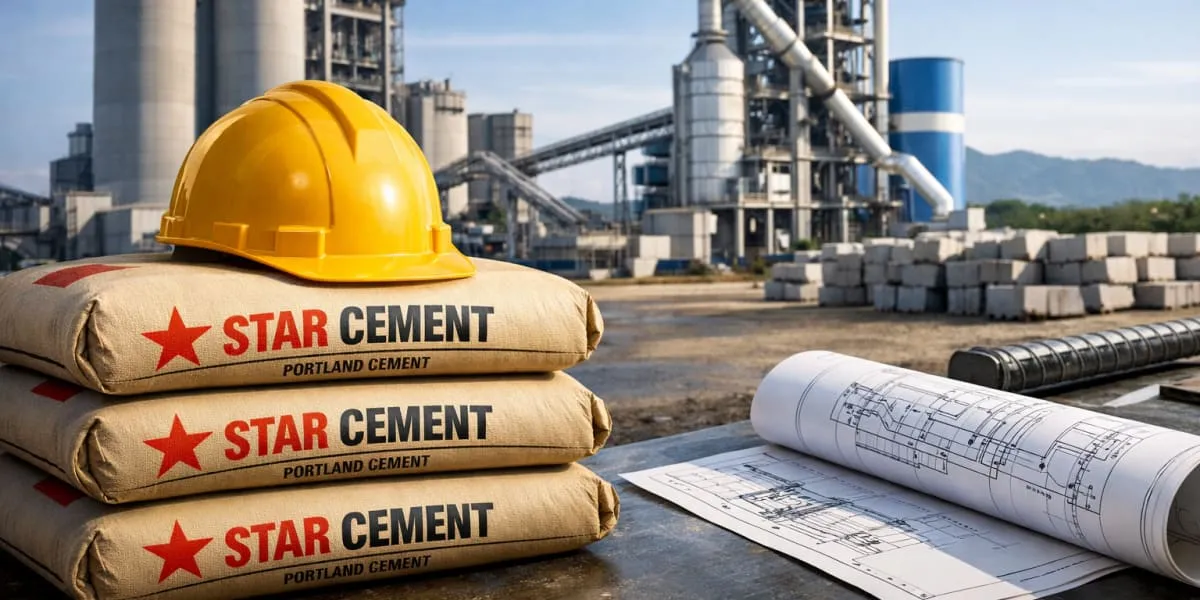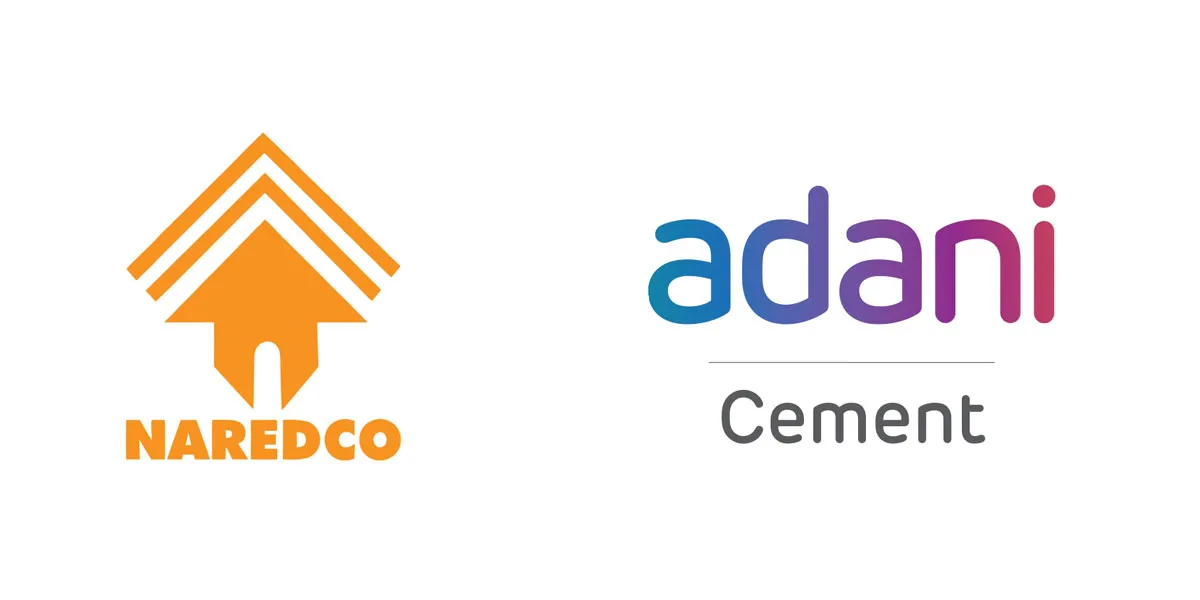To be hosted at Hotel Shangri-La Eros, New Delhi, the conference will witness more than 25 experts, policymakers, and industry leaders discussing innovative technologies, sustainable practices, and funding opportunities that promise to revolutionise the road construction landscape in India.
Mumbai (India)
FIRST Construction Council (FCC) – an infrastructure think tank – will be hosting the 13th India Roads Conference (IRC) on October 12, 2023 at Hotel Shangri-La Eros, New Delhi, to explore new opportunities in the road construction business. To be hosted as a part of India Construction Festival 2023 (ICF 2023) along with Construction World Global Awards 2023 (CWGA 2023) and Equipment India Awards 2023 (EI Awards 2023), IRC 2023 will focus on transforming India’s road infrastructure by presenting an unique platform for networking, knowledge-sharing, and collaboration.
India’s road development sector is poised for unprecedented growth, housing one of the largest road networks in the world, spanning over 6.3 million km. The National Infrastructure Pipeline (NIP) forecasts a substantial investment of Rs 111 trillion in infrastructure projects during fiscals 2020-25, with a a significant portion allocated to the road sector. Against this backdrop, the 13th India Roads Conference intends to discover the abundant market opportunities, the latest trends, and how the industry can capitalise on this thriving sector.
Renowned experts, policymakers, and industry leaders will converge to discuss innovative technologies, sustainable practices, and funding opportunities that promise to revolutionise the road construction landscape in India. Some of the confirmed speakers for IRC 2023 are Lt. General Harpal Singh, Former Engineer-In-Chief, Indian Army; Dr Manoranjan Parida, Director, CSIR-CRRI; Ajay Kumar Mishra, President, Dilip Buildcon; RK Pandey, Former Member Projects, NHAI & Former ADG, MoRTH; SK Nirmal, Secretary General, India Roads Congress; Premjit Singh, CEO – Transportation, Welspun Enterprises; TR Rao, Director (Infra), PNC Infratech; Hardik Agrawal, Director at Dineshchandra R Agrawal Infracon Pvt Ltd, Thumu Karthik, CEO, LivSYT (DevIndia Technologies); Pawan Kant, CEO, LTIDPL IndVIT Services Ltd (IM to IndInfraVIT Trust); and Palash Srivastava, CEO, IIFCL Projects among others.
The roadmap of the future
India currently has one of the largest road networks in the world, spanning over 6.3 million km. Of this, around 2 per cent are National Highways, 3 per cent are State Highways and the rest are part of the district and rural road network. Over 64.5 per cent of all goods and 90 per cent of passenger traffic move by road.
India has seen significant growth in its road network over the last five years, as the government has given priority to this sector. For the financial year 2022-23, the Central budget allocated more than Rs 2.70 trillion to the Ministry of Road Transport and Highways (MoRTH). The importance attached to the sector is also evinced by the fact that it accounts for approximately 18 per cent of the National Infrastructure Pipeline (NIP). Various state governments are also developing critical road corridors as a catalyst of economic development. Lately the focus has been on road safety, green initiatives, digital transformation and augmentation of funding sources.
Explaining the significance of IRC 2023, Pratap Padode, President, FIRST Construction Council, said, “India, not China, has the second-largest road network in the world after the US, spanning about 63.32 lakh km. NHAI awarded total projects of 6,003 km with a value of Rs 1.26 trillion during FY23. A provisional target of constructing about 13,800 km has been set for 2023-24. This presents excellent opportunity for all the stakeholders in the sector. India Roads Conference 2023 will explore ways on how to build a robust, safe road network by using latest technologies while meeting environment norms.”
In line with the market trends, experts during the India Roads Conference 2023 will deliberate on following relevant topics:
- Shaping regulations for safe and sustainable roads
- Revolutionising road construction with technology
- Accelerating road infrastructure with better financing opportunities
- Safer roads: Innovative designs for enhanced safety
Attendees can gain valuable insights from dynamic panel discussions, insightful keynotes, and cutting-edge innovation showcases. Thus, by participating in India Roads Conference 2023, delegates can stay ahead of industry trends, forge valuable partnerships, and contribute to building safer, greener, and more efficient road networks.
IRC 2023 is supported by Tiki Tar and Shell India (Silver Partner), Tata Hitachi (Equipment Partner), PNC Infratech Ltd (Associate Partner), and LivSYT (Technology Partner).
About India Construction Festival 2023
Organised by the FIRST Construction Council in collaboration with Construction World and Equipment India magazines, the 9th India Construction Festival (ICF) stands as a cornerstone in the construction and infrastructure industry. India Construction Festival serves as the single largest platform for celebrating India’s remarkable infrastructure journey, bringing together all stakeholders in the industry under one roof. This comprehensive approach fosters collaboration, facilitates knowledge sharing, and creates networking opportunities that are pivotal for the growth and development of India’s infrastructure sector. ICF 2023 will comprise three major events: 13th India Roads Conference, 11th Equipment India Awards and 21st Construction World Global Awards.
About FIRST Construction Council:
FIRST Construction Council (FCC), an infrastructure think tank established in 2003, focuses on providing the latest updates on the construction industry in India, and is dedicated to promoting its causes and needs. FCC provides a platform to promote the adoption of best practices and be the torchbearer for all policy initiatives that are needed to enhance the importance and welfare of the construction industry and the industry’s unified voice. FCC also hosts conferences/events like India Construction Festival, Metro Rail Conference, Infrastructure Today Conclave 2023, etc.


 Economy & Market4 weeks ago
Economy & Market4 weeks ago
 Economy & Market4 weeks ago
Economy & Market4 weeks ago
 Concrete1 month ago
Concrete1 month ago
 Concrete1 week ago
Concrete1 week ago






















